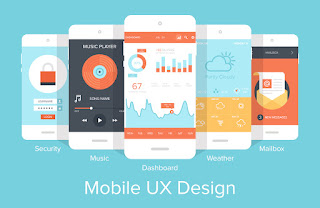Mobile User Experience UI/UX Design Why It Matters
When designing a digital presence, whether it is a website or a mobile app, attractive graphics and engaging content are not the only things that matter. One aspect of the web and app design that many designers still overlook is the need for good user experience design. But, what exactly is user experience design (UX Design), and why does it matter so much? Here’s why every business must think about the user experience when they design websites and apps.
What User Experience Design Is
User experience design is often used to describe the usability of an application or the user interface. The true meaning of UX design, though, goes far beyond that. UX design encompasses the entire process of software design and development. It includes branding, functionality, design, integration, and usability. UX designers look beyond simply creating usable products. They also consider the user’s pleasure and enjoyment in acquiring and using the product. UX design is the process of creating applications that are relevant and meaningful. Applications that users want to use. So, how can UX design benefit a business?
UX Design Encourages Use Interaction
Creating content is not enough. You need to create content that people will want to interact with. That includes written content, images, advertisements and calls to action. UX design includes techniques that encourage user interaction. These techniques include producing content that will appeal to the target audience. It also includes personalization features, such as “You may also like” types of functions. A UX designer will also be looking at consistency throughout an app or site. Software that is predictable and comfortable to use is software that people will want to use.
UX Design Generates Loyalty
UX design creates customer loyalty through great experiences. An easy to use app or website backed by great service will encourage a user to use the then again. To do this, a UX designer will create a customer journey map (CJM). This maps a user’s entire journey through the site or app. This journey will be thoroughly tested to ensure that a user’s interaction with the product is as smooth and trouble-free as possible. It’s putting the design team in the shoes of the user.
UX Design Generates Recommendations
The good UX design encourages word of mouth recommendations. The ease of use of a well-designed site or application and the usefulness of it will encourage people to tell others about the product. A part of UX design is to make sharing easy. A free recommendation from a user is far more powerful than a paid-for advertisement.
UX Design Reduces Development Costs
UX design keeps a project within budget and reduces development costs. UX design includes extensive user research, prototyping, and usability testing. This ensures that development time is targeted on the areas of functionality that matter. This focused approach means better initial design specs, less risk of feature creep, and more relevant content. It greatly recuses the need for last-minute redesigns and enhancements.
UX Design Reduces Internal Costs
UX design is end-user focussed from the outset. That concentrates design and development effort on what users want, not on what developers think they want. As well as saving money on development costs, UX design stops businesses from wasting internal resources. For example, UX design will help identify the products that people want. This would allow sales and marketing efforts to be focussed on profitable products, rather than the less profitable ones. It also reduces support costs by reducing the need for manual intervention.
UX Design Increases Profits
UX design can have a direct impact on the bottom line. It has been proven that 75% of people judge an app or website on its aesthetic design. People are more likely to buy from a well-designed website or app than they are from an unappealing one.
The easier a site or app is to use; the more people will use it. That is true for the entire journey that a user takes through the app or website. From how fast the screens and pages load, to how easy it is to sign up for an account and place an order. If all the steps are easy, a user is more likely to progress to the final step of making a purchase or completing a desired action.
UX design seeks to reduce the number of user interactions to a minimum. It also guides the user through processes with clear calls to action. The overall effect of UX design is increased revenues, reduced costs, and improved customer satisfaction.
Historically, websites and mobile apps have been developed with the needs of the business in mind. UX design is reversing that trend and putting the needs of the user first. Consumers are becoming more and more experience-driven. Global online spending is increasing at a phenomenal rate. Businesses that don’t adopt UX design principals may soon find themselves trailing far behind the competition that does. Benefits of the web-based system.

Comments